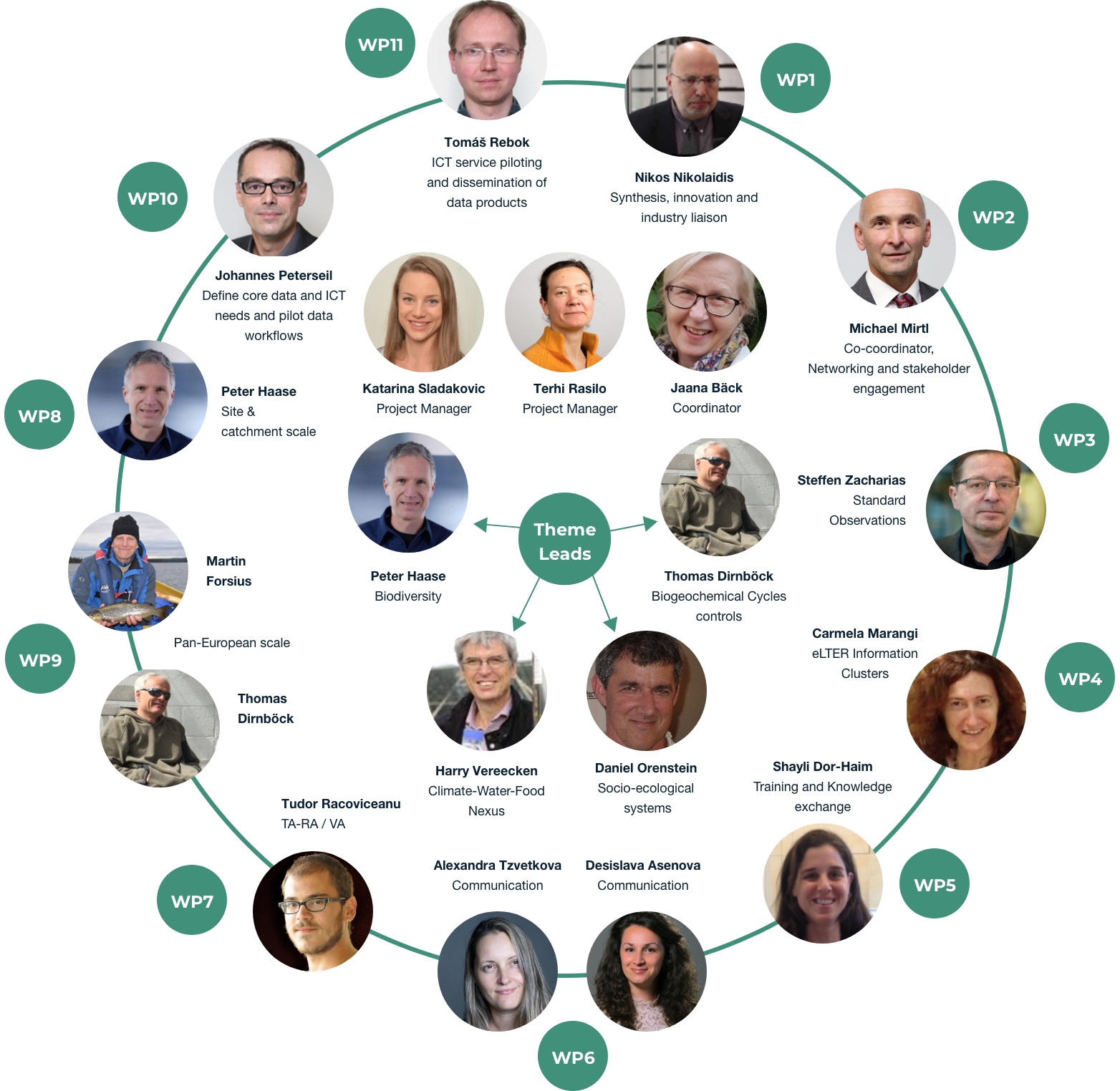WP1 will synthesise relevant innovation aspects for the next generation of ecosystems RIs supporting a Whole System Approach. It will serve as a pilot between eLTER PLUS project and the eLTER ESFRI process.
WP2 analyses and identifies shareholders and describes and characterises their needs and requirements. It aims at strengthening the links with Sites and Platform Coordinators and develops relationships with other European and global RIs.
WP3 develops recommendations for the selections of Standard Observations. It identifies in-situ designs needs for remote sensing calibration and produce a review on standardisation of variables and protocols at European level.
WP4 will develop workflows for harvesting from different information sources (statistics, satellite data etc.) and integrating with eLTER data to create Information Clusters. These will be piloted into eLTER Data Information Portal (DIP)
WP5 develops and organises trainings for different stakeholder groups. The training will cover subjects related to site operations, data management, and scientific approaches like Whole System Approach.
WP6 builds and actualises a communication strategy for the project. It builds and maintains various communication channels for project internal and external communication needs.
WP 7 organises annual Transnational and Remote Access calls open to the scientific community also beyond project beneficiaries. It also takes care that eLTER Central Data Node is well populated with data for Virtual Access.
WP8 will explore how long-term biodiversity, biogeochemistry, hydrology and socio-ecological data from eLTER network can provide a holistic understanding of the ecosystems response to environmental and societal pressures. The focus will be on the site and catchment scale.
WP9 It will assess and synthesise activities at the pan-European network scale, and identify improvements in the network’s ability to address research questions. WP9 is complementary to WP8.
WP10 will establish the eLTER RI data service function and access portal requirements for data acquisitions, data quality control and analytical workflows.
WP11 will work for new and innovative exercises extending the existing eLTER information infrastructure and piloting these new workfols as fully operational eLTER RI services.
WP12 offers free-of-charge opportunities for researchers to run ecological and socio-ecological projects by visiting eLTER Sites. Whis WP included the work needed to be done by site personnel to enable this.
WP13 facilitates geographically widespread access to the many eLTER sites in a time efficient and cost-effective way. Site personnel will run a protocol of a RA project on behalf of the researcher themself.
WP14 maintains eLTER data management tools and enables virtual access to eLTER datasets through DEIMS-SDR, eLTER DIP and eLTER CDN, and related services. It also supports the data providers.
WP15 takes care of the strategic and practical management of eLTER PLUS. It covers all scientific, technical, administrative, financial and legal matters.

The role of Work Packages
eLTER PLUS consists of one management WP and 14 other Work Packages. WP3 & WP4 are devoted to harmonising observation methods, WP7 improves network services through advanced workflows for Virtual Access, WP8, WP9 and WP11 foster Research and Innovation for the RI through 3 Joint Research Activities, and WPs 12–14 provide physical, remote, and virtual access to sites and platforms. WP1, WP2, WP5, WP6 provide networking activities focusing on community building, outreach, training and dissemination activities. WP15 takes care of the overall coordination and management activities.